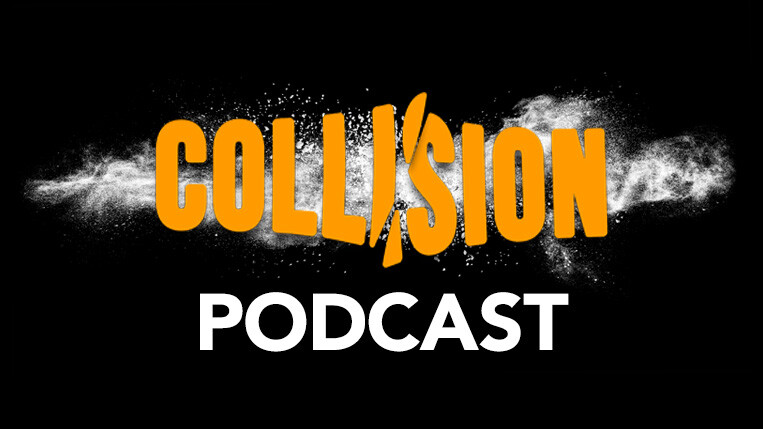Are we in the End Times?

Jul 24, 2024 |
Revelation has often been misused to spread fear rather than courage. We're diving into Revelation's historical background, purpose and context to better understand the vivid imagery, symbols and prophecies laid out before us.
We believe you'll emerge with a renewed perspective on the Revelation of Jesus that removes fear and ignites hope into your everyday life!
What is the Apocalypse?
The word "Revelation" comes from a Greek word from which we get our English word "apocalyptic". That’s why the book of Revelation is referred to as apocalyptic literature. That’s the genre of literature and is image heavy. It means to pull back the curtain or to unveil, to disclose what’s to come. It is written not just to inform our minds, but to elicit passion in our souls.
The book of Revelation was written by the Apostle John around 95 AD as a letter to seven churches in Asia Minor who were facing severe persecution under Roman rule. In the opening verses, John makes it clear that the primary purpose of Revelation is to unveil Jesus Christ as the victorious King. While there are differing views on eschatology and end times, Revelation's focus is on encouraging believers with the assurance of Jesus' triumph, not providing a detailed timeline of future events.
The churches John wrote to would have found courage and hope in the revelation of Jesus as the faithful witness, the firstborn from the dead, and the ruler of all the kings of the earth.
At a time when Caesar demanded worship, the apostle John boldly proclaimed that Jesus, not Caesar, is Lord. Jesus' death and resurrection, foreshadowed in Revelation 12, showed that even in the face of brutal, cruel persecution, God's people can have confidence in the ultimate victory of Christ.
While some of us do not face the same level of persecution today, Revelation calls all believers to faithful witness and courage in living for Jesus, just as the early church did under Roman rule.
Rather than getting distracted by speculative debates over prophecy, our focus should be on beholding the beauty and majesty of Christ revealed through Scripture. Revelation promises we will find the happiness and blessing that comes from knowing our victorious King.
What is the Throne Room?
In Revelation chapters 4-5, John shares a vision of God on His throne in heaven, surrounded by worship from creatures, elders, and angels. God is described as holy, eternal, and the creator of all things. Jesus, the slain lamb who is worthy, ransomed people from every tribe and nation through his blood.
This immense scene of worship in heaven reminds us to look beyond our earthly struggles to the reality of God's eternal sovereignty. Those struggles that cause us to take our eyes off God, like fear, health issues, financial problems, or pursuing comfort over God.
It is easy for our perspective to become distorted when facing difficulties in life. We may find ourselves constantly looking down at problems and forgetting to look up to God. However, by following a few simple steps, we can train ourselves to maintain focus on our sovereign Lord even in troubling times.
- Identify the idols competing for your worship. Ask yourself what things, besides Jesus, you feel you need in order to be happy or at peace. Common idols include money, health, relationships, success, and comfort. Circle the idols you struggle with most.
- Spend time daily reading about His holiness, power, faithfulness, and love. Meditate on His unchanging nature from past to future. Make notes of His attributes to recall when worries arise.
- Consciously lift your eyes from problems to praise God for who He is. When anxious thoughts come, pause and pray, "God, you are holy. You are in control. I trust you." Sing worship songs to refocus your heart. Turning from idols to the Creator shifts perspective.
- Share your struggles with fellow believers and ask them to pray for your vision to stay clear. Community accountability prevents drift and doubts seem smaller when shouldered together by the body of Christ.
- Act in faith according to God's character, not your feelings. Obey despite fear. Give thanks in trials, remembering that God works all things for good. Live out your trust in His sovereignty through obedience born of love, not fear.
Your heart and mind can look above difficulties to our great God on His eternal throne. Though struggles come, fix your eyes on Jesus and walk in the light and peace of His everlasting kingdom.
Who is the Antichrist?
Chapter 13 in Revelation has long puzzled interpreters and fueled speculation. Throughout Christian history this passage has been applied in both responsible and irresponsible ways.
First, Context:
One important piece of background is the cultural phenomenon of the Imperial Cult that permeated society in Asia Minor under Roman rule. Participation was expected and provided social and economic benefits, but presented a dilemma for early Christians who saw it as idolatry. John sought to guide churches wrestling with loyalty to Christ versus empire through this passage. By depicting the beasts as mimicking and countering Jesus, John highlighted the incompatibility of worshipping both.
Literary and historical evidence suggests John was making a veiled critique of the hated Roman emperor Nero through the beasts. Allusions to Nero's monstrous acts of violence and persecution of Christians give weight to interpretations connecting the beasts to him. Details like the healed wound reference a myth of Nero returning from death, portraying him as a false savior figure. For churches facing threats, John aimed to strengthen resolve through this coded attack on the oppressive imperial system.
By properly contextualizing Revelation 13 with its ancient setting in mind, we can determine the message of encouragement and warning John intended for churches of his day. While speculation about direct modern fulfillments should be avoided, the timeless theological truths of loyalty to Christ alone remain relevant.
Today:
Revelation 13 has application for all times, not just the 1st century, as there are always political powers that claim worship due only to God and false religious leaders who try to steal attention from God. Though we do not live under the Roman Empire, we all seek security and protection from something - whether political outcomes we hope for or visions of how the future will unfold. However, putting our hopes in political systems or visions of the future distract us from devotion to God alone.
The real Jesus simply invites us to spend time with him. The key to his message is that we must be wary of false messiahs in any form - whether political, religious, or our own hopes and works - that distract from true worship and devotion to God only. But the good news is Jesus promises to reach even the farthest strayed and invites us to an intimate relationship with Him if we open the door.
Key points:
- Revelation 13's message of false messiahs applies to all time periods, not just the 1st century. There will always be political and religious leaders claiming our worship when it really belongs solely to God.
- We must be careful not to put our ultimate hopes in political outcomes, visions of the future, or even our own works and teachings - these can become "fake Jesus's" that distract us.
- The real Jesus promises to reach anyone, no matter how far they've strayed, and invites an intimate relationship over a meal together as friends. For those tired of constant "fake Jesus's," the speaker offers the opportunity to text "Jesus" to speak with someone about learning about the true Jesus and next steps in following him
What does Babylon have to do with today?
The book of Revelation provides a powerful warning and invitation for Christians living in any age. Revelation uses vivid symbolic imagery to depict an ongoing spiritual battle between God's kingdom and the corrupt influences of this world.
The imagery of Babylon represents the seductive culture that entices us away from wholehearted devotion to Jesus.
Babylon promises pleasure, comfort and fulfillment through wealth, fame, sex and putting ourselves in God's place. Yet as the passage warns, this way of life only leads to destruction. No human system can ultimately satisfy or save.
Meanwhile, the New Jerusalem symbolizes God's eternal kingdom ruled by Christ. Within its walls are radical generosity, purity, and peace. By God's grace, all are invited to become citizens of this city through faith in Jesus.
So how do we respond as readers today?
- Wake up to Babylon's influence in our own lives and culture. Don't be naive - she remains a masterful deceiver, subtly appealing even to followers of Jesus. Examine closely how you find purpose, identity and fulfillment.
- Choose to "come out" of Babylon daily through obedience to Christ. Reject defining your own values and instead live by the ethics of God's kingdom. Seek first His righteousness and way of life.
- Embrace your citizenship in the New Jerusalem even now. Though we await its full revelation, start experiencing its blessings through worship, generosity and living at peace with God and others.
- Keep your eyes fixed on Jesus, the true and faithful king. Don't be distracted by the fading beauty of Babylon or the trials of this life. He has overcome and calls us to permanent joy and meaning in Him. May your life increasingly reflect the reality of His eternal city.
Key Points:
- Revelation warns of two opposing cities - Babylon, which represents worldly influence and corruption, and the New Jerusalem, which symbolizes God's eternal kingdom ruled by Jesus.
- Babylon seduces with promises of pleasure, comfort and fulfillment through putting oneself in God's place, but it only leads to destruction. The New Jerusalem offers radical generosity, purity and shalom.
- Christians are called to "come out" of Babylon by rejecting defining their own values and in- stead living according to God's ethics and righteousness.
- Believers should embrace their citizenship in the New Jerusalem even now through worship, generosity and living in peace with God and others, keeping their eyes fixed on Jesus as king.
What will the new heaven and new earth be?
The Bible tells us in Revelation 21-22 about God's vision for a new heaven and new earth. This passage paints a beautiful picture of what eternal life with God will look like. It describes a place where there will be no more death, mourning, crying, or pain. God Himself will dwell among His people and be their God. He will wipe every tear from our eyes.
This vision stands in stark contrast to the alternative, which is eternal separation from God in the lake of fire. Revelation warns that those whose names are not written in the book of life will be thrown into this place of torment.
So in light of eternity, how should we live today?
First, we must realize that we have an important choice to make. We can either belong to the holy city, the bride of Christ, or to Babylon, the city of sin and rebellion against God. Our eternal destiny depends on this choice. The Bible is clear that the only way to be part of God's holy city is by placing our faith in Jesus Christ. We must turn from our sin and selfishness and trust in Christ to save us. His perfect life and atoning death on the cross pay the penalty for our sins so that we can be forgiven. By faith in Him, God sees us as righteous.
Once we have made this choice, Revelation instructs us to persevere in faith until the end. Though following Jesus will not be easy in a fallen world, staying true to Him is the only way to receive the crown of life. Let us fix our eyes on Jesus, the pioneer and perfecter of our faith, and run with per- severance the race marked out for us.
We must also reconsider how we spend our time and resources here on earth. Do our schedules and budgets truly reflect that our real home is in heaven? Are we living in light of the shortness of this life and the certainty of judgment?
Key Points:
- Revelation provides a vision of God's plan to create a new heaven and new earth, free from suffering and death, where God will dwell among his people.
- Eternity involves an important choice - to belong to either the holy city of God or the sinful city of Babylon. Our destiny depends on placing faith in Jesus Christ.
- Believers must persevere in faith until the end to receive the crown of life. We fix our eyes on Jesus and run the race marked out for us.
- In light of eternity, we reconsider how we spend our time and resources on earth. Our schedules and budgets reflect that our real home is in heaven and judgment is certain.
What are the: Seven Seals, 144,000, Rapture, and Millennium?
Below are common questions from the book of Revelations that rise from its symbolic and mysterious passages:
- What are the seven seals?
- Who are the four horsemen of the apocalypse?
- What is the day of the Lord?
- What's the 144,000 people all about?
- When does the rapture happen?
- What is the millennium?
- Who is the beast?
- Who is Babylon?
- What's this whole idea of the prostitute about and what does all that mean?
Full Message "Ask Anything":
The Seven Seals
The scroll sealed with seven seals represents God's plans unfolding in history. When Jesus is declared worthy to open it, judgment will come as in heaven. The first four seals reveal the four horsemen - Conquest, War, Famine, and Death - depicting the chaos of human history as a warning, NOT the future. The fifth seal shows Christian martyrs crying out to God. The sixth seal involves significant signs that precede the great day of the Lord and final battle between good and evil. There will be darkening of the sun and moon, falling stars, and shaking of powers on earth. Then the sign of the Son of Man will appear in heaven. The cycles of seven seals, trumpets, and bowls are also explained in this message. Though the timing differs in views, all three culminate with Christ's return and defeat of evil.
The Remnant of 144,000.
This is so important because what John hears is the symbolic number of 144,000 but when he turns around he saw a great multitude that no one could number from every nation from all the tribes and peoples and languages standing before the throne, and before the Lamb, clothed in white robes with palm branches in their hands crying in loud voice, "Salvation belongs to our God who sits on the throne." The 144,000 represent the army of heaven that is being led by Jesus. It's made up of people from all nations, and it's fulfilling one of the greatest promises given all the way back in Genesis chapter 12.
The Rapture
Regarding the rapture event, it involves believers being caught up to meet Jesus in the air after the tribulation period, based on passages in 1 Corinthians and 1 Thessalonians. Historically speaking, the rapture has been used to breed fear into people like "What if I missed the rapture." Paul says, These words are not meant to scare you to bring anxiety. This is to encourage you. There are also differing views on when exactly this will occur in relation to the tribulation.
The Millennium
The term "Millennium" refers to events in Revelation 20 where Christ reigns on earth for 1000 years. While the word itself is not biblical, it helps describe this period mentioned in Revelation.
There are three primary views on the timing and nature of the Millennial reign.
- Premillennialism believes Christ will return after the Tribulation period to institute a literal 1000 year reign on earth.
- Postmillennialism sees the Millennium as a future golden age where society is overwhelmingly Christian, coming after the church age.
- A-millennialism views the Millennium as the current church age between Christ's first and second comings.
These views are a result of theological interpretation rather than orthodoxy versus heresy.
Key points:
- Revelation promises Jesus will defeat evil and usher in a new kingdom.
- The seals, trumpets and bowls depict God's judgment and justice.
- Views on the rapture and millennium involve interpretation and are open-handed issues.
- The focus should remain on Christ's victory, not dividing the Church over uncertain details.



